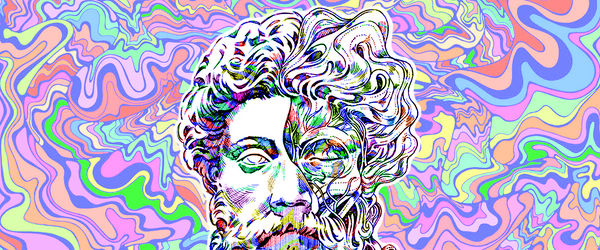Jordan Bates • • 7 min read
Is Regret Inevitable? — A Haunting Comic + Answers From Kierkegaard & Nietzsche
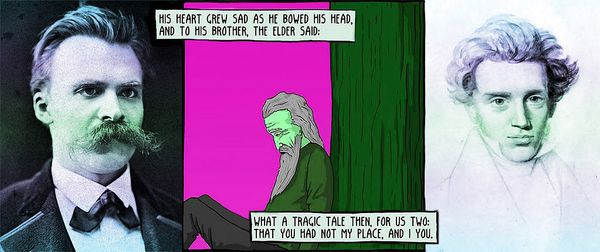
‘Two Brothers’ by Existential Comics
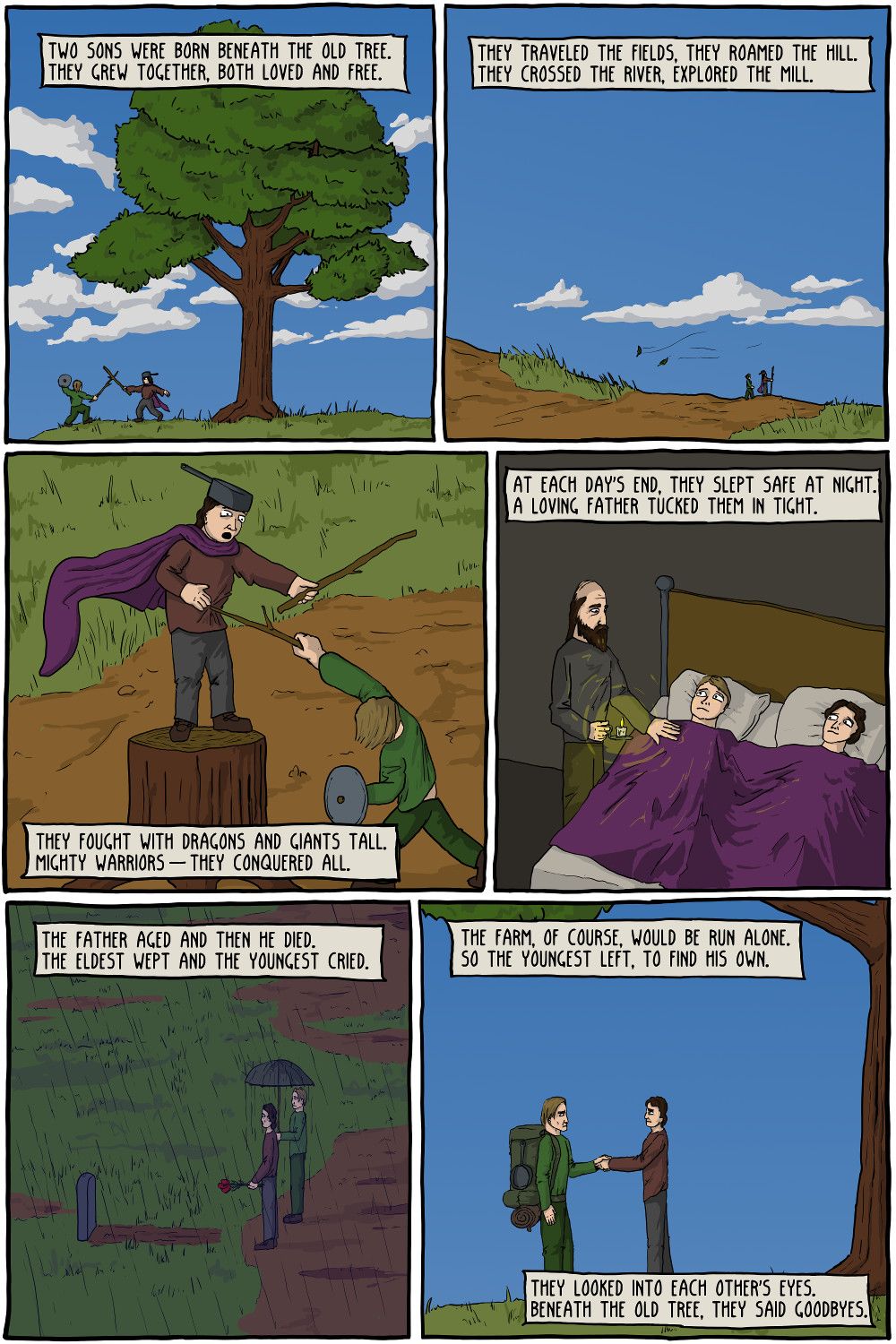
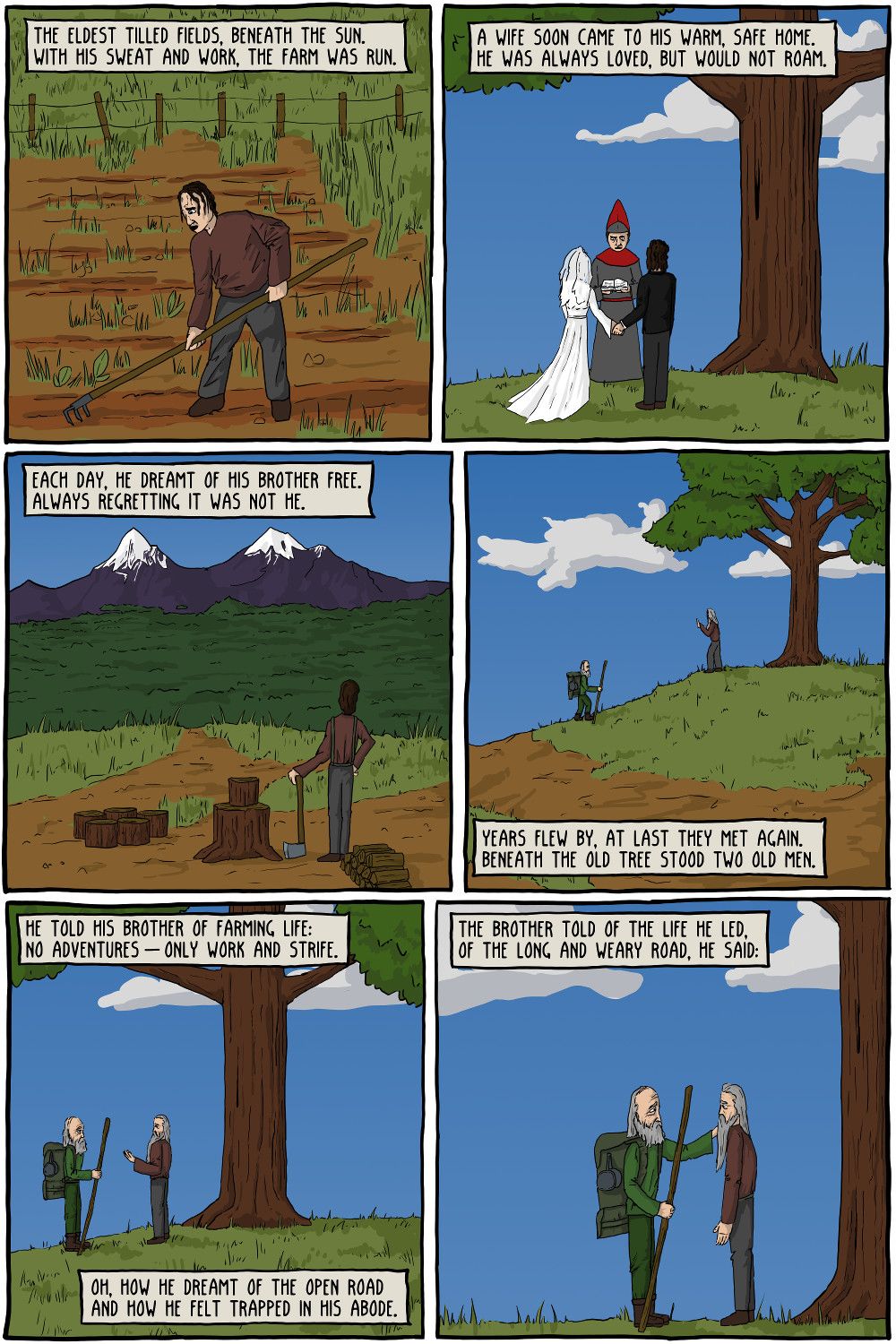
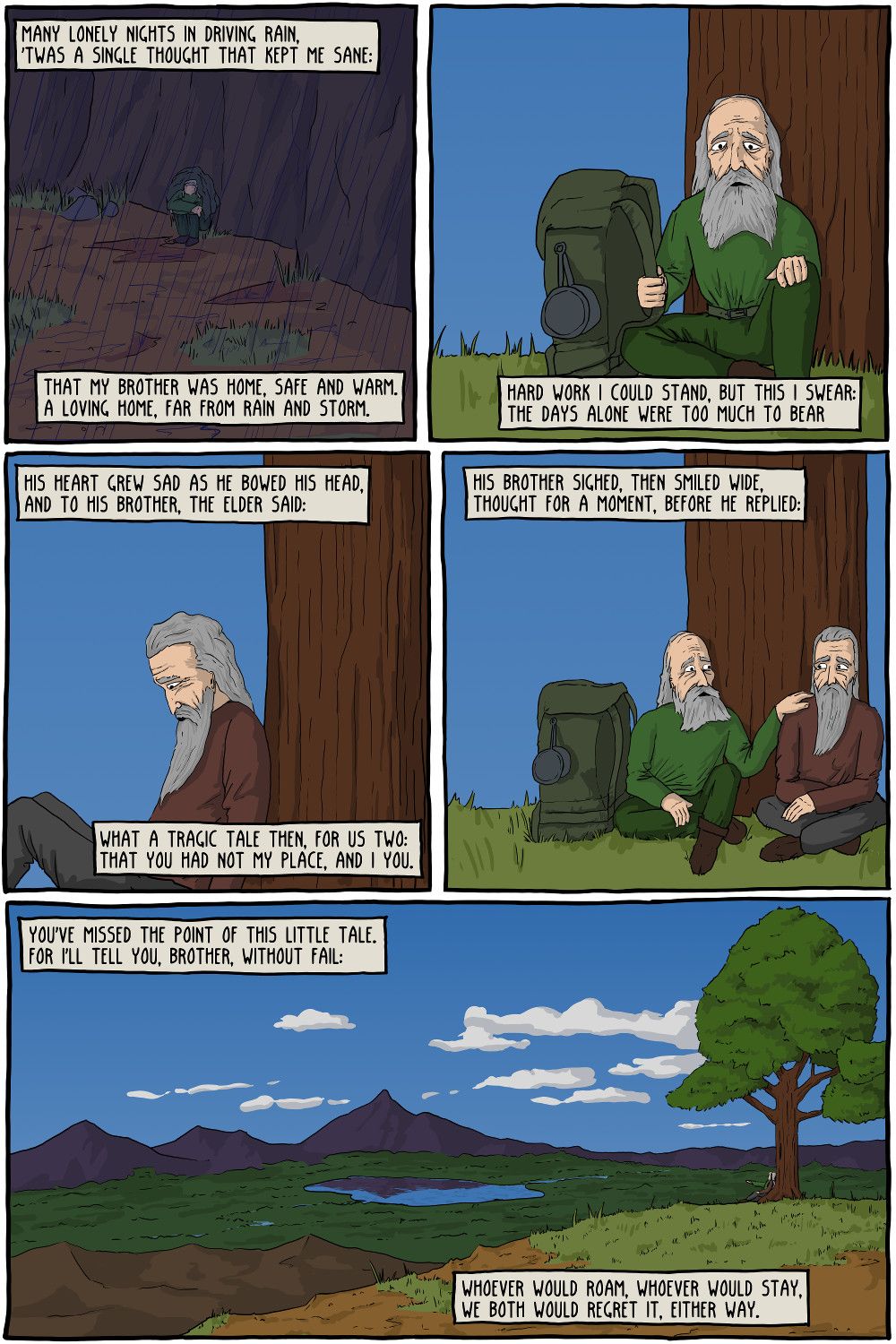
An Existential Conundrum

I suspect that Corey at Existential Comics was compelled to make this comic after seeing this quote from the great Danish existentialist, Søren Kierkegaard:
“I see it all perfectly; there are two possible situations — one can either do this or that. My honest opinion and my friendly advice is this: do it or do not do it — you will regret both.”

The quote is from what is perhaps Kierkegaard’s most well-known book, Either/Or: A Fragment of Life, and its meaning is pretty straightforward: no matter what we do, we will regret what we did not do. A rather bitter draft, eh?
Elsewhere, Kierkegaard wrote:
“The most painful state of being is remembering the future, particularly the one you’ll never have.”
Kierkegaard describes a feeling of somber nostalgia for unrealized possibilities, a sense of regret or grief for the future that one did not create or could not pursue because of restrictive circumstances.
Kierkegaard was preoccupied with the idea that the number of possibilities for our lives can actually lead to despair, famously saying that, “Anxiety is the dizziness of freedom.”
That is, we know that opting for a particular course of action in life precludes us from opting for countless other potential courses of action, and thus the luxury of having many options in life (some people do not) can actually be paralyzing, disorienting, even maddening.

Sylvia Plath, the brilliant American poet and novelist who would eventually commit suicide at the age of 30, was haunted by the overwhelming number of possibilities she saw for herself. This unsettling passage from her novel, The Bell Jar, is the most exquisite literary elaboration of the “dizziness of freedom” that I’ve seen:
“I saw my life branching out before me like the green fig tree in the story. From the tip of every branch, like a fat purple fig, a wonderful future beckoned and winked. One fig was a husband and a happy home and children, and another fig was a famous poet and another fig was a brilliant professor, and another fig was Ee Gee, the amazing editor, and another fig was Europe and Africa and South America, and another fig was Constantin and Socrates and Attila and a pack of other lovers with queer names and offbeat professions, and another fig was an Olympic lady crew champion, and beyond and above these figs were many more figs I couldn’t quite make out. I saw myself sitting in the crotch of this fig tree, starving to death, just because I couldn’t make up my mind which of the figs I would choose. I wanted each and every one of them, but choosing one meant losing all the rest, and, as I sat there, unable to decide, the figs began to wrinkle and go black, and, one by one, they plopped to the ground at my feet.”
The comic from Existential Comics, in characteristically cynical fashion, suggests that regardless of which fig we opt to pluck from the proverbial tree, we will inevitably regret having not explored our other options. Kierkegaard may have agreed. Somber nostalgia for unrealized possibilities is, in this view, inevitable. But is it really?
The Love of Fate
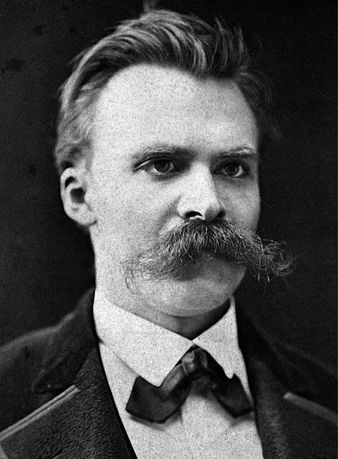
Friedrich Nietzsche, the famous German existentialist, is noted for espousing the idea of amor fati, which loosely translates to “the love of one’s fate.” In his book, Ecce Homo: How One Becomes What One Is, he wrote:
“My formula for greatness in a human being is amor fati: that one wants nothing to be different, not forward, not backward, not in all eternity. Not merely bear what is necessary . . . but love it.”
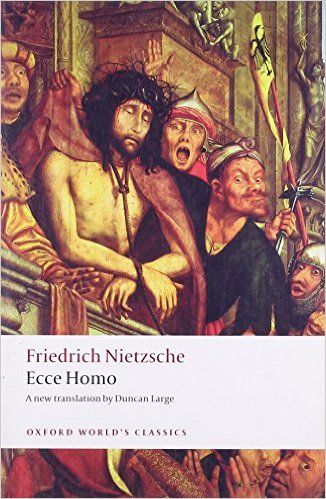
So Nietzsche’s idea was that humans should aspire to accept and even embrace their lives precisely as they were, seeing every detail as necessary and loving each for precisely that reason.
This notion is related to Nietzsche’s idea of the “eternal recurrence of the same”—the idea of having to live one’s life over and over again for eternity.
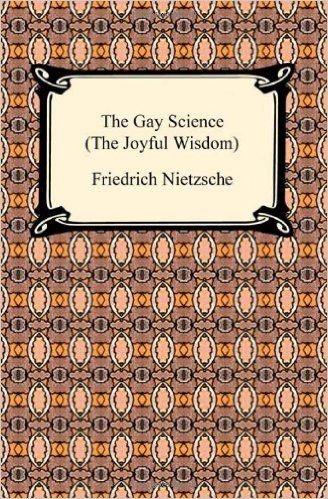
Nietzsche thought that the greatest of people would say “yes!” to eternal recurrence, accepting and affirming their lives to such an extent that they would be content, even eager, to live the same life over and over for eternity. In The Gay Science (The Joyful Wisdom), Nietzsche wrote:
“The heaviest burden: What, if some day or night, a demon were to steal after you into your loneliest loneliness and say to you: ‘This life, as you now live it and have lived it, you will have to live once more and innumerable times more; and there will be nothing new in it, but every pain and every joy and every thought and sigh… must return to you—all in the same succession and sequence—even this spider and this moonlight between the trees and even this moment and I myself. The eternal hourglass of existence is turned over again and again—and you with it, speck of dust!’ Would you not throw yourself down and gnash your teeth and curse the demon who spoke thus? Or have you once experienced a tremendous moment when you would have answered him: ‘You are a god, and never have I heard anything more divine!’”
Ultimately, it seems to me that the existential antidote for Kierkegaard’s “dizziness of freedom” and the nostalgia for unrealized possibilities is to discover amor fati, to attain, by whatever means, a love of one’s fate, whatever it may be.
This perspective seems to entail an almost religious reverence for the machinery of existence, a trust that what is happening is necessary, that life is not in the wrong. The magnificent poet, Rainer Maria Rilke, seems to have possessed such a trust when he wrote:
“Let life happen to you. Believe me: life is in the right, always.”
This perspective—that life is always in the right—has arisen in countless places on Earth and in many periods of history, appearing in various schools of thought.
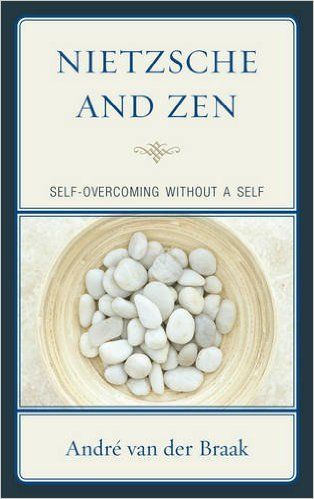
I’m particularly fascinated by its connection to Zen and Taoism and the potential overlap between the thought of Nietzsche and that of Zen or Taoist sages (still need to read Nietzsche and Zen). One of my favorite Zen proverbs says that, “No snowflake ever falls in the wrong place,” a sentiment that I think contains the same essence of trusting that whatever is happening is right, even if it doesn’t seem to be so.
Realizing this perspective in one’s own life is, I think, a colossally difficult task. One can understand the idea intellectually and see its benefits, but that is not enough to really feel it in one’s core. I’ve found that practicing meditation and mindfulness and generally attempting to let go, surrender, and accept whatever situation I find myself in, have allowed me to move closer to amor fati, though I don’t know that I have arrived fully, or ever will. The practice in itself, however, has helped me to become a much more contented person with greater equanimity. I suspect it can help you as well.
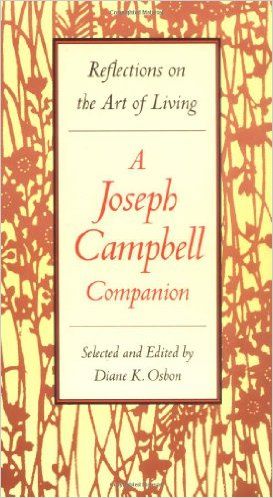
Joseph Campbell, the renowned comparative mythologist and a hero of mine, was also quite taken with the idea of amor fati. In his writing and lectures, one detects a certain zeal for life that suggests that he had perhaps attained the state in full. I’ll leave you with this beautiful passage on amor fati, taken from Reflections on the Art of Living: A Joseph Campbell Companion, in hopes that it might push you closer to accepting and affirming your existence, without regretting what might have been:
“Nietzsche was the one who did the job for me. At a certain moment in his life, the idea came to him of what he called ‘the love of your fate.’ Whatever your fate is, whatever the hell happens, you say, ‘This is what I need.’ It may look like a wreck, but go at it as though it were an opportunity, a challenge. If you bring love to that moment—not discouragement—you will find the strength is there. Any disaster that you can survive is an improvement in your character, your stature, and your life. What a privilege! This is when the spontaneity of your own nature will have a chance to flow.
Then, when looking back at your life, you will see that the moments which seemed to be great failures followed by wreckage were the incidents that shaped the life you have now. You’ll see that this is really true. Nothing can happen to you that is not positive. Even though it looks and feels at the moment like a negative crisis, it is not. The crisis throws you back, and when you are required to exhibit strength, it comes.”

Jordan Bates
Jordan Bates is a lover of God, father, leadership coach, heart healer, writer, artist, and long-time co-creator of HighExistence. — www.jordanbates.life


![Seneca’s Groundless Fears: 11 Stoic Principles for Overcoming Panic [Video]](/content/images/size/w600/wp-content/uploads/2020/04/seneca.png)






